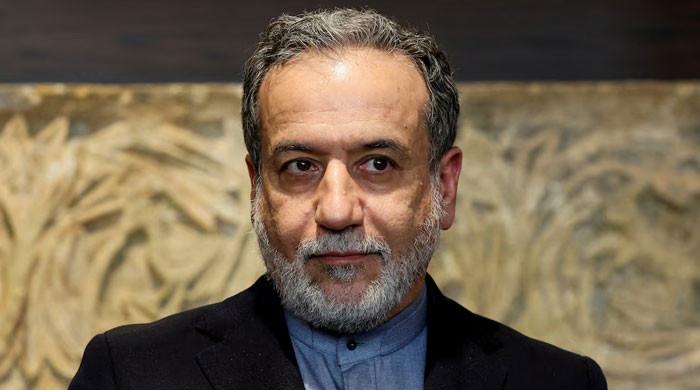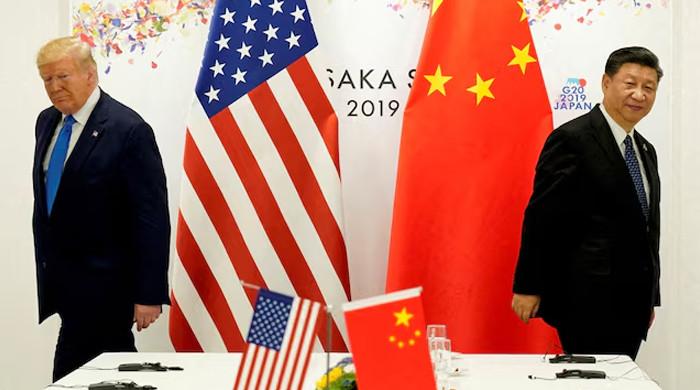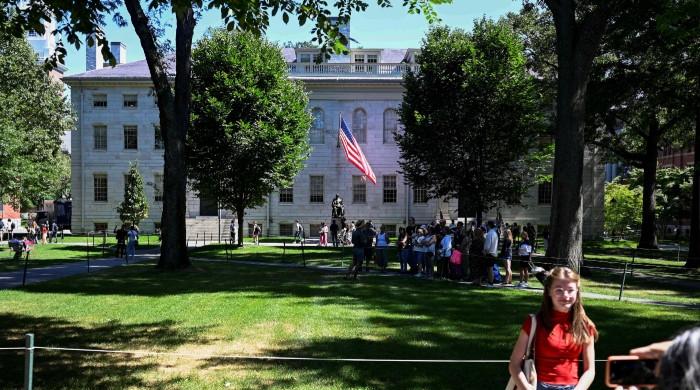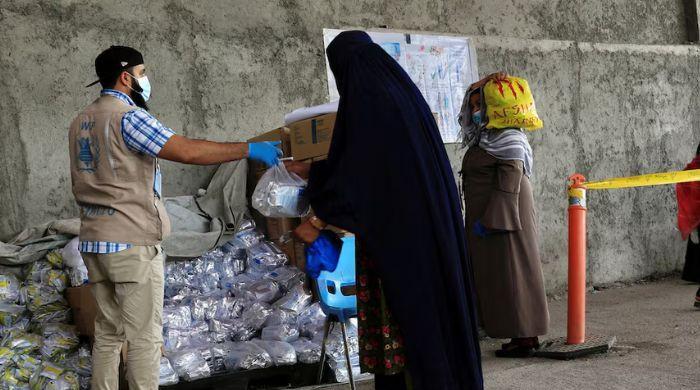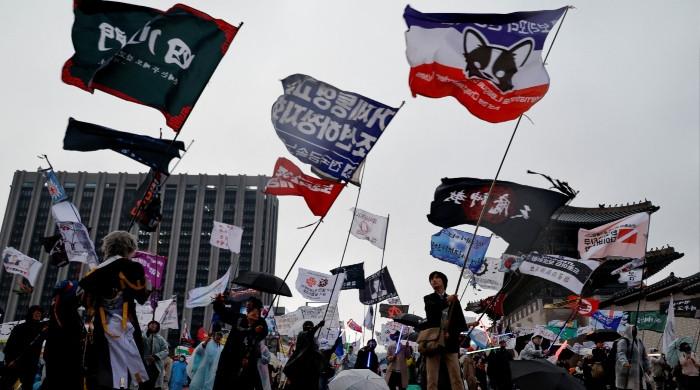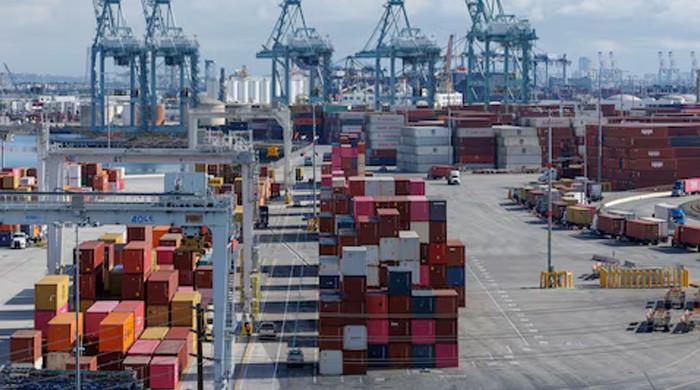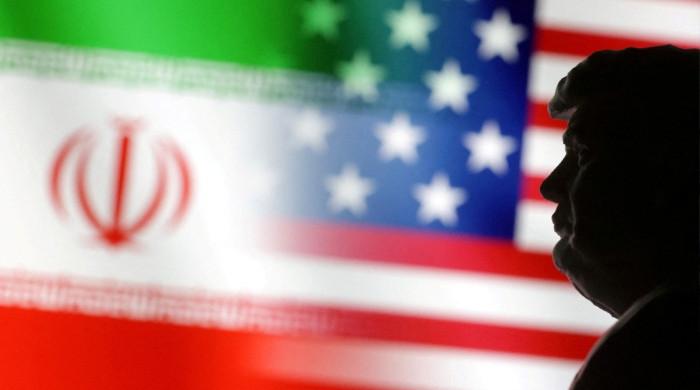US officials review intel sharing after damaging leak
Investigators are working to determine who might have had the ability to release the intelligence reports, says an official
April 11, 2023
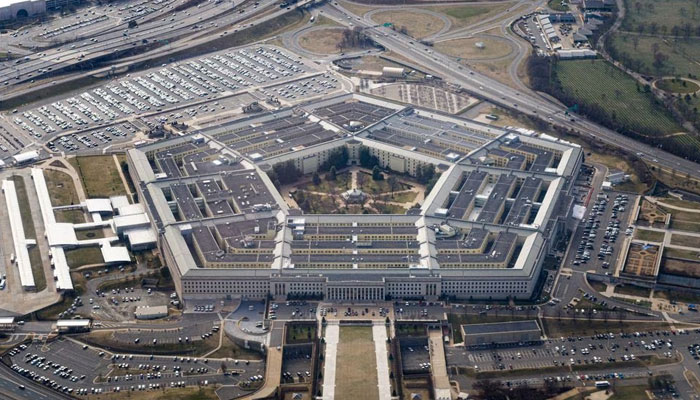
WASHINGTON: US national security agencies are reviewing how they share their most sensitive secrets inside the US government, and dealing with the diplomatic fallout from the release of dozens of confidential documents, three US officials said.
Investigators are also working to determine what person or group might have had the ability and motivation to release the intelligence reports, said one of the officials. The leaks could be the most damaging release of US government information since the 2013 publication of thousands of documents on WikiLeaks.
Reuters has reviewed more than 50 of the documents, labelled "Secret" and "Top Secret", that first appeared on social media sites in March and purportedly reveal details of Ukrainian military vulnerabilities and information about allies including Israel, South Korea and Turkey.
Reuters has not independently verified the document's authenticity. US officials have said some documents giving battlefield casualty estimates from Ukraine appeared to have been altered to understate Russian losses.
Some of the most sensitive information is purportedly related to Ukraine's military capabilities and shortcomings.
The Department of Justice has opened a criminal investigation into the disclosure of the documents.
One US official, speaking on the condition of anonymity, said the Pentagon had taken the opportunity to look at how widely some intelligence is shared internally and make sure that people who do not need it any longer have access to it.
The official said this was occasionally done within the Pentagon and intelligence community, but the leaks had prompted another look at some of the distribution lists.
The Pentagon continues to examine procedures governing how widely some of the most sensitive US secrets are shared, the official added.
"There have been steps to take a closer look at how this type of information is distributed and to whom," Pentagon spokesman Chris Meagher told reporters on Monday.
Meagher said that Defense Secretary Lloyd Austin was first briefed on the leaks on April 6 and on April 7 he started convening senior leaders on a daily basis to discuss the leaks.
He added that the documents appeared to be in a similar format to those used to provide updates to senior leaders, but some of the images appear to have been altered.
Some of the documents, another official said, would most likely have been available to thousands of people with US and allied government security clearances despite being highly sensitive, as the information directly affected those countries.
The first official said the number of people who had access to the documents underscores that sensitive information was perhaps being shared too widely with personnel who might not require the level of detail some of the documents contained.
"The Pentagon has needed to curtail the unbridled access to some of the most sensitive intel when they've (got) no justifiable reason to have it," the first official said.
The two officials said further that although the leaks were highly concerning, many of them provided only snapshots of time in February and March - when they were dated - but did not appear to disclose anything about future operations.
Although the release appears to be the most serious public leak of classified information in years, officials say it so far does not reach the scale and scope of the 700,000 documents, videos and diplomatic cables that appeared on the WikiLeaks website in 2013.
Searching for a motive
Since the current leak first came to light in March, the investigators have been pursuing theories ranging from someone simply sharing the documents to show off the work they were doing to a mole inside the US intelligence community or military, the first official added.
Daniel Hoffman, a former senior CIA undercover officer, said that given past activities of Moscow's intelligence agencies, it was "highly likely" that Russian operatives posted documents related to Ukraine as part of a Russian disinformation operation.
He said such operations were a "classic" practice of Russian spy services to leak authentic documents in which they have inserted false information.
The aim, he said, appeared to be to drive a wedge between Ukraine and the United States, Kyiv's largest provider of military support.
Some national security experts and US officials say they suspect that the leaker could be American, given the breadth of topics covered by the documents, but they do not rule out pro-Russian actors. More theories could develop as the investigation progresses, they said.
The Kremlin and the Russian Embassy did not respond to a request for comment about whether it was involved in the leak.
Ukraine said it's president and top security officials met on Friday to discuss ways to prevent leaks.
The White House has referred all questions about the leak to the Pentagon. The Pentagon said that over the weekend, US officials spoke with allies and notified the relevant congressional committee about the leak.
Impact on allies
The leaks have already drawn responses from some foreign governments.
On Sunday, Israeli Prime Minister Benjamin Netanyahu's office labelled as "mendacious and without any foundation whatsoever" a document asserting that the Mossad, one of the country's intelligence agencies, encouraged recent protests against Netanyahu's plan to tighten controls on the judiciary.
A South Korean presidential official said on Sunday the country was aware of reports about the leaked documents and planned to discuss "issues raised" with Washington.
One of the documents gave details of internal discussions among senior South Korean officials about US pressure on Seoul to supply weapons to Ukraine, and its policy of not doing so.
It is not uncommon for the United States and other countries to spy on their allies. But public disclosures of such spying are uncomfortable for those allies.
"It is going to take some time to rebuild trust with our allies," the second US defence official interviewed by Reuters said.
Michael Mulroy, a former senior Pentagon official, played down the lasting impact. "It may cause short-term problems for the relationships but I believe long-term the shared interests between the countries will still be strong."




